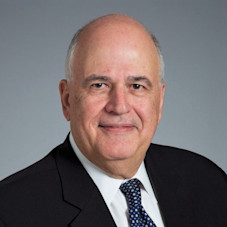While working for companies that were very active in international markets in the mid-‘80s and throughout the ‘90s, I noticed that they could have been even more successful if they embraced a more global view on how to do business around the world. The prevailing thought at the time was that if you were successful in your home market, you could repeat your success by simply promoting your products abroad – no changes were thought to be necessary to the products themselves, how they were presented to foreign customers, or how their benefits and value were highlighted to target markets. While the realities of business cultures and the perception of value differ, and the economic justification for capital equipment acquisitions varies from country to country, most companies in the United States still used the same marketing and sales strategies across different global markets.
Some other non-manufacturing technology industries at that time, however, started to understand that the marketing and sales actions in a globalized economy needed to change. Thought leaders began to see the global markets in a more holistic way, and created strategies and tactics based on the specific needs and idiosyncrasies of each unique market. In other words, they were thinking globally but acting locally in each market.
Arguably, today, with all the tribulations of the international economy, unpredictable behavior of the supply chain, and higher inflation, thinking globally and acting locally becomes even more important.
A global vision and thinking process allow for more stability and resilience. They also provide balance between risk and market expansion. A company becomes less dependent on short-term actions that create conflict between selling what you have versus developing what your customers need. Thinking globally creates a better understanding on how strategic alliances and other forms of collaboration here in the United States and abroad can benefit the short term as well as the long term, increasing sales and lowering costs. Global thinking provided me with an understanding of how to develop strategies that are above and beyond reactive decision-making based on the short- and medium-term ups and downs of the economy in our domestic market. As a matter of fact, it serves as an equalizer that compensates for the business shortcomings here at home.
Local action, directly in the target market, expands your knowledge of your international customers, their needs and wants, and reveals ways to provide them with a better experience in doing business with you rather than your competitors. Our ability to understand our customers’ challenges and resources provides us with significant insight that is rarely obtained through a distributor or representative, as so much is lost in translation. The more you act locally, the more you create the perception that you are there for the long term. And this is a warm feeling for any foreign customer.
In my experience thinking globally and acting locally, I’ve been able to provide my past companies with business opportunities and exposure to additional applications that would never have surfaced if we only developed products for our domestic markets.
Mario C. Winterstein, CEO at International Business Development Group Inc., writes Mario’s Global Beat for AMT. Fluent in six languages, Winterstein is a business and international trade strategist in marketing, sales, and service support management for the metal working industry. His career spans 34 years planning, implementing, and managing international marketing, sales, service organizations, and starting “green-field” manufacturing plants. Mario spent 17 years as a director at AMT supporting members with their global growth. During his tenure, he served as staff liaison for several AMT committees, conducted foreign trade missions, and stood up and presided over the AMT Tech Centers in Mexico and Brazil. He is a member of the D.C.-Virginia District Export Council (DEC), duly appointed by the U.S. secretary of commerce. He lives and works in Herndon, Virginia.
If you have any comments, concerns, or questions, please contact Mario Winterstein at mwinterstein@ibdgi.com.






